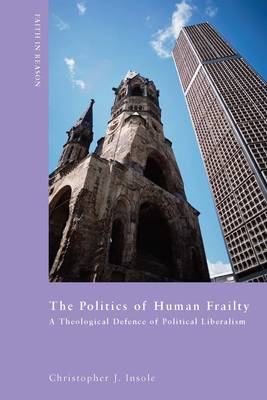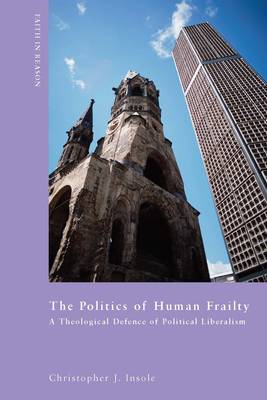
- Afhalen na 1 uur in een winkel met voorraad
- Gratis thuislevering in België vanaf € 30
- Ruim aanbod met 7 miljoen producten
- Afhalen na 1 uur in een winkel met voorraad
- Gratis thuislevering in België vanaf € 30
- Ruim aanbod met 7 miljoen producten
Omschrijving
The latest book in the Faith in Reason series provides a theological defense of a strand of political liberalism that is informed by the theological conviction that the human person is a creature incapable of its own perfection, although nonetheless called to and made for this perfection. Insole questions easy caricatures of liberalism, which tend to describe it as individualistic, hubristic, and relativist. By analyzing the works of Edmund Burke, Lord Acton, Richard Hooker, and John Rawls, Insole shows that a passion to protect the individual within liberal institutions arises not from an illusory sense of self-sufficiency, but from insight into our fallen condition and from an intimation of redemption and divine order.
By attending to thinkers such as Richard Hooker, Edmund Burke, Lord Acton, and John Rawls, Insole shows that a passion to protect the individual within liberal institutions can arise not from an illusory sense of self-sufficiency, but from an insight into our fallen condition, characterised by frailty, sin, and complexity. This strand of political liberalism arises from a sense of our solidarity in sin with others, and the hubris of judging our fellow citizens, when judgement belongs to God alone. Such a position would be at odds with theologically over-zealous appropriations of the theme of "liberty."
Insole investigates how notions of "liberty" employed in England, America, and France have distinct theological lineages, and separates the political liberalism he defends from over-zealous appropriations. He also critiques Radical Orthodoxy, arguing that the Radical Orthodoxy project is politically naïve, utopian, and dangerous.
Specificaties
Betrokkenen
- Auteur(s):
- Uitgeverij:
Inhoud
- Aantal bladzijden:
- 200
- Taal:
- Engels
- Reeks:
Eigenschappen
- Productcode (EAN):
- 9780268031756
- Verschijningsdatum:
- 28/03/2005
- Uitvoering:
- Paperback
- Formaat:
- Trade paperback (VS)
- Afmetingen:
- 157 mm x 237 mm
- Gewicht:
- 335 g

Alleen bij Standaard Boekhandel
Beoordelingen
We publiceren alleen reviews die voldoen aan de voorwaarden voor reviews. Bekijk onze voorwaarden voor reviews.











